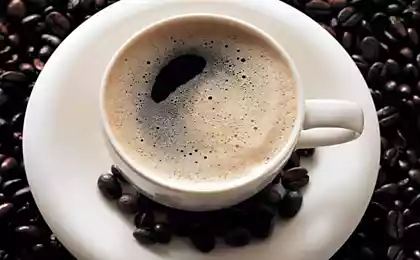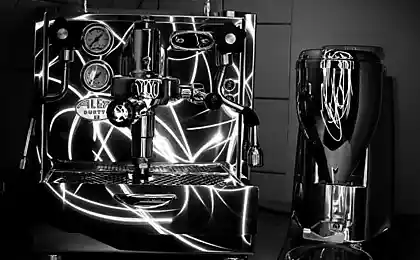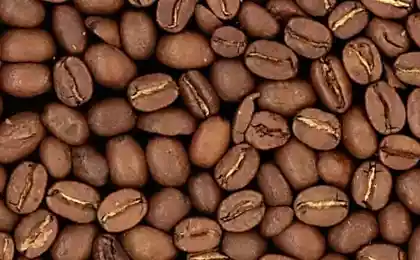424
The largest patent trolls try to slip you the coffee powder
Cup of coffee you drank this morning was a difficult process to go from solid to drink, and likely were transported by boats, trains, trucks and possibly in the conclusion person. But it all starts with the coffee berries grown on the coffee plantations. They are edible but often discarded as a waste product, when the coffee beans are removed, and the waste discharged into rivers or converted into fertilizer using worms. But now several companies are trying to turn them into something completely different: in the flour with caffeine.
Forty three million two hundred forty three thousand three hundred thirty three
It's called coffee powder. The invention company Intellectual Ventures (IV) and the recently formed CF Global holding company led by Dan Bilive, the former expert logistics Starbucks. You probably know the company Intellectual Ventures, which the public associates as a "patent Troll", a company that has done business in patents, not products. This is an appropriate term for Intellectual Ventures, in most cases, they either fought for the license agreement, or was involved in litigation with some of the biggest names in technology. Instead of producing and selling the invention, they acquire invention of their authors.
But a lesser-known part of the company's business Intellectual Ventures is "the development Fund of inventions" — a collection of private clients, schools and businesses who exchange some of their own creations, which become available to the company IV, and join the growing pool their resources. That's exactly what happened with the coffee powder that got into the business-the development of Starbucks from the veteran Belive and Ken Poppe, who spent more than five years at Starbucks, but now are co-founders of the development Fund of inventions in the United States. This couple tries to turn the waste material into a product for which people will pay, the project is estimated at about 16-17 billion pounds.
"The search for coffee supply chain and cooperation with major coffee suppliers have got us thinking that there must be a better way to use the pulp of coffee berries," said the Priest. "The efforts already made for today, do not have the necessary scale to deal with the annual volume of the waste mass".
This process of grinding the sun-dried coffee berries to produce flour, which is prepared meals is kept in the strictest confidence, and Poppe said that the company has filed the enrollment request process on seven different patents. The current plans to supply farmers growing coffee, which will simply bring the berries to local plants, for drying fruit. Farmers receive a fee for this, although Poppe has not said how much, he also did not mention what kind of investment company IV was made the holding company CF Global.
According to the process, the end result is a flour that does not taste like coffee, but has "a unique flavor with a floral aftertaste", changing depending on what location the beans delivered. It also has five times more fiber than whole wheat flour and three times more iron than fresh spinach. At the time, as it was not a consumer product, it was used in Seattle restaurant Crush, which became a proving ground in earlier use. The restaurant took the meal, which is composed of gluten, but works best combined with standard flour, this concept is regularly used in cooking main dishes and expensive desserts.
"We started with basic recipes for cookies," said Andrew Fedak, co-founder of CF Global. "The best clarifying moment was that it worked in the cooking of pasta and bread. We thought that the product will be very fragile, but the bread turned out".
For the company IV, this is not the first time she dabbled in the food processing industry. Co-founder Nathan Myhrvold, he is a former chief technology officer of Microsoft, author of "Kitchen modern style", which consists of a set of five cookbooks, they weigh 52 pounds and cost $625. In the same lab, where the company's employees transform new inventions for patenting, Myhrvold got a test kitchen equipped with modern appliances and equipment. IV the company also has partnerships with other companies to optimize cow milk production and determine the classification of meat with the use of technology instead of human intuition. The Grand project involves printing a balanced meal on a network printer power, something similar to the Replicator of Star Trek.
Company IV has also filed an application for obtaining a trademark and the name "coffee powder", that may be the ultimate brand of the product, which you'll find in the store. But this in General may not happen until next year. Instead, the flour can become an ingredient of other foods – pancakes with caffeine. But those who thought about super-Breakfast should take note: "it is substantially less caffeine than brewed coffee," says Fedak. "It does not work the same way as coffee. The concentration of caffeine is less, so it doesn't really work as a stimulator."
Source: monoblog.su/
Forty three million two hundred forty three thousand three hundred thirty three
It's called coffee powder. The invention company Intellectual Ventures (IV) and the recently formed CF Global holding company led by Dan Bilive, the former expert logistics Starbucks. You probably know the company Intellectual Ventures, which the public associates as a "patent Troll", a company that has done business in patents, not products. This is an appropriate term for Intellectual Ventures, in most cases, they either fought for the license agreement, or was involved in litigation with some of the biggest names in technology. Instead of producing and selling the invention, they acquire invention of their authors.
But a lesser-known part of the company's business Intellectual Ventures is "the development Fund of inventions" — a collection of private clients, schools and businesses who exchange some of their own creations, which become available to the company IV, and join the growing pool their resources. That's exactly what happened with the coffee powder that got into the business-the development of Starbucks from the veteran Belive and Ken Poppe, who spent more than five years at Starbucks, but now are co-founders of the development Fund of inventions in the United States. This couple tries to turn the waste material into a product for which people will pay, the project is estimated at about 16-17 billion pounds.
"The search for coffee supply chain and cooperation with major coffee suppliers have got us thinking that there must be a better way to use the pulp of coffee berries," said the Priest. "The efforts already made for today, do not have the necessary scale to deal with the annual volume of the waste mass".
This process of grinding the sun-dried coffee berries to produce flour, which is prepared meals is kept in the strictest confidence, and Poppe said that the company has filed the enrollment request process on seven different patents. The current plans to supply farmers growing coffee, which will simply bring the berries to local plants, for drying fruit. Farmers receive a fee for this, although Poppe has not said how much, he also did not mention what kind of investment company IV was made the holding company CF Global.
According to the process, the end result is a flour that does not taste like coffee, but has "a unique flavor with a floral aftertaste", changing depending on what location the beans delivered. It also has five times more fiber than whole wheat flour and three times more iron than fresh spinach. At the time, as it was not a consumer product, it was used in Seattle restaurant Crush, which became a proving ground in earlier use. The restaurant took the meal, which is composed of gluten, but works best combined with standard flour, this concept is regularly used in cooking main dishes and expensive desserts.
"We started with basic recipes for cookies," said Andrew Fedak, co-founder of CF Global. "The best clarifying moment was that it worked in the cooking of pasta and bread. We thought that the product will be very fragile, but the bread turned out".
For the company IV, this is not the first time she dabbled in the food processing industry. Co-founder Nathan Myhrvold, he is a former chief technology officer of Microsoft, author of "Kitchen modern style", which consists of a set of five cookbooks, they weigh 52 pounds and cost $625. In the same lab, where the company's employees transform new inventions for patenting, Myhrvold got a test kitchen equipped with modern appliances and equipment. IV the company also has partnerships with other companies to optimize cow milk production and determine the classification of meat with the use of technology instead of human intuition. The Grand project involves printing a balanced meal on a network printer power, something similar to the Replicator of Star Trek.
Company IV has also filed an application for obtaining a trademark and the name "coffee powder", that may be the ultimate brand of the product, which you'll find in the store. But this in General may not happen until next year. Instead, the flour can become an ingredient of other foods – pancakes with caffeine. But those who thought about super-Breakfast should take note: "it is substantially less caffeine than brewed coffee," says Fedak. "It does not work the same way as coffee. The concentration of caffeine is less, so it doesn't really work as a stimulator."
Source: monoblog.su/























